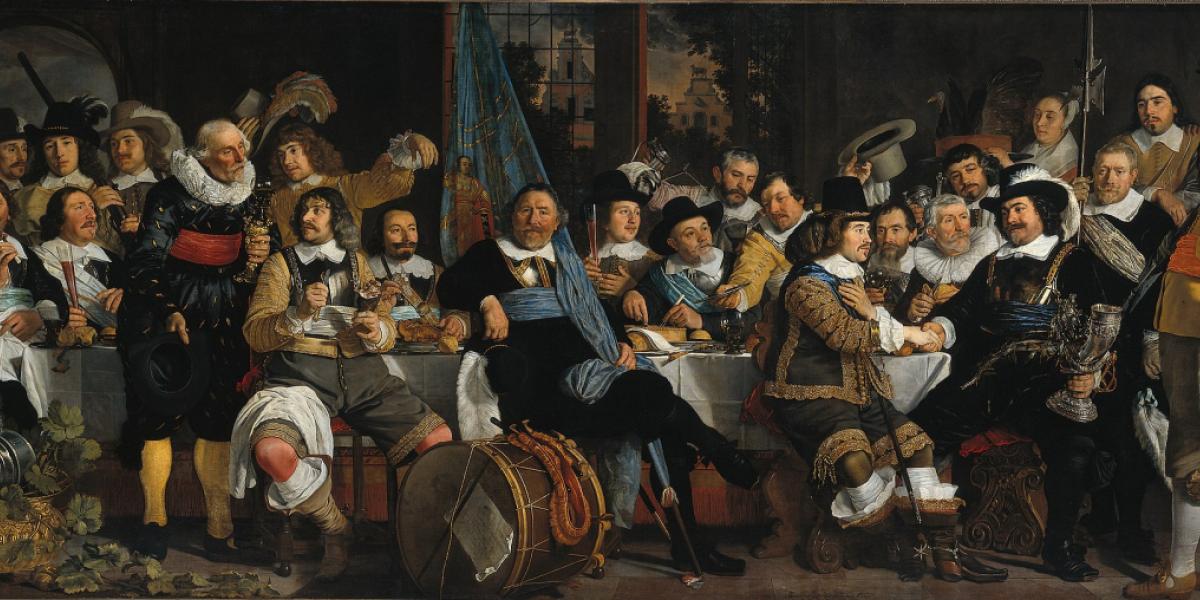
The Rise of the Western Nuclear Family and the “European Miracle”
It’s now been nearly 35 years since E.L. Jones first published his watershed book The European Miracle. Jones’s history of Europe’s economic development examined the reasons why Europe—a comparatively poor and backward part of the world in the Middle Ages—somehow became the wealthiest and most productive place on earth in the nineteenth century. The fundamental question remains: why did Europe surpass other civilizations1such as Islam and China—which had once been much richer than the west?
According to Jones, a major factor in Europe’s drive to economic prominence was the high degree of economic freedom. As Jones puts it: “Economic development in its European form required above all freedom from arbitrary political acts concerning private property.” Or, as historian Ralph Raico concluded, Europe’s industrialization was closely connected to the fact that “the economy achieved a degree of autonomy unknown elsewhere in the world except for brief periods.”
This, of course, raises the question of why Europeans enjoyed higher levels of economic freedom. As Raico shows in his work on late antiquity and the Middle Ages, Europe’s political institutions were different from anywhere else, thanks largely to the unique position of the Western Church as a rival and competitor against the civil power. Consequently, no single state or polity was able to consolidate power across the region. Ongoing rivalries between the Church, various kings, and countless private “corporate” organizations further solidified a decentralized political structure in which various groups jealously guarded their property and economic interests from the grasping hands of princes and legislators.
But there’s even more to it than that. Another institution at the core of the story of the European miracle is the family, and specifically the European nuclear family. We find that specific European factors led to growing numbers of nuclear families which, in turn, supported the rise of Europe’s private “corporate” organizations that fueled Europe’s ecosystem of decentralized, diverse, and private organizations.
The Historical Origins of the Nuclear Family
One notable characteristic of Western Europe after the Early Middle Ages is an unusually high proportion of nuclear families. Outside Western Europe, so-called “stem families” and “joint families” were more common. In these two family types, grown children and elderly adults more commonly lived together, and the creation of new households was less common than in areas with nuclear families. In joint families, large extended families could be found living together in close proximity or even on a single estate.(One variation of this model is the Roman ideal of the “pater familias.”)
In the case of stem families, most of the grown children leave to start new households while one of the children—often the oldest son—remained living with the elderly parents in anticipation of inheriting the parent’s land or business.
The historical extended families, and the clan structures that accompanied them, went into relative decline during the Middle Ages in Europe. The resulting rise in prevalence of nuclear families appears to have been encouraged by economic factors and also by religious factors tied to the Catholic Church.
According to economic historian Avner Greif, the Catholic Church in the early Middle Ages “instituted marriage laws and practices that undermined kinship groups.” Polygamy, concubinage, divorce and remarriage we all discouraged, and this worked to limit the overall size of families. Moreover, the Church restricted “consanguineous” marriages—generally marriages among first cousins or other close relatives. The Church also required that women explicitly consent to their marriages. These latter two factors did much to curtail the power of patriarchs and patriarchs of large families who might seek to consolidate their power through arranged marriages and marriages among cousins.
Over time, this all encouraged a proliferation of nuclear families, and Greif notes
By the late medieval period … the nuclear family was dominant. Even among the Germanic tribes, by the eighth century the term “family” denoted one’s immediate family and, shortly afterwards, tribes were no longer institutionally relevant.
The Rise of the Corporations
This created a need for new organizations to replace the old services offered by extended families. That is, individual nuclear families are generally unable to provide their own means of settling disputes and fostering economic exchange beyond the immediate family. Clans and tribes often provide these resources. So, in order to replace what had once been offered by family networks, groups of families participated in the creation of “corporations.”
These were not the corporations we today associate with joint-stock companies. These organizations were “voluntary, interest-based, self-governed, and intentionally created permanent associations. In many cases, they were self-organized and not established by the state.” These included the Church itself, but also monastic orders, universities, the Italian city-states, urban communes, militias, and merchant guilds. All actively sought to protect their own commercial interests in Europe’s various legal institutions.
Moreover, whatever their provenance, these corporations tended to think of their own interests as distinct from the interests of the prince or civil power. The corporations thus acted as yet another institutional brake on state power. As Raico shows, Europe’s decentralized political power—and the accompanying protections for private property—grew out of complex legal environment of contracts, rights, and other legal considerations forced upon princes and civil authorities by the demands of these corporate groups. Thus, Europe came to be home to political and legal philosophies respecting the idea of “mine and thine” rather than the idea that all belongs to the prince or the collective.
Other Factors
Of course, the rise of nuclear families was not only the result of Church reforms. Economic and ideological factors were significant as well. Greif notes that Europeans were more accepting of relatively high levels of individualism—which he claims stemmed from earlier Greek, Roman, and Germanic ideals.
Economic realities also affected the shift in family types.
The Black Death was one factor. As one pair of historians put it in 2013, “By killing between a third and half of the European population, it [the Black Plague] raised land-labor ratios.” Moreover, Christopher Dyer notes “Unskilled workers’ wages rose more rapidly than those of the skilled after 1349, a sure indication of a labour shortage…” It thus became easier to create new, economically viable household under these conditions.
By the sixteenth century, wages were also rising due to increases in urbanization, new forms of wage work, and new economic opportunities that came with proto-industrialization.
Rising economic opportunities did not, however, erase the desire among nuclear family groups to further pursue economic and social opportunities through corporations that provided critical services to member families.
Over the long term, as Greif concludes, these corporations contributed to the economic growth of Europe by streamlining greater economic exchange, developing a reliable legal framework, and by fostering trust among non-kin groups. These benefits accrued to Europeans also in how the corporations limited state power—a key factor in the European miracle, according to Jones.
The Decline of the Corporations
Unfortunately, the rise of new political ideologies and movements in Europe eventually destroyed many independent, non-state corporations while bringing many others under the control of states. Mercantilism, absolutism, and nationalism, for instance, all weakened or destroyed the non-state corporations by promoting the consolidation of state power. As Murray Rothbard notes about the rise of the French absolutist state:
The sixteenth century French legalists also systematically tore down the legal rights of all corporations or organizations which, in the Middle Ages, had stood between the individual and the state. There were no longer any intermediary or feudal authorities. The king is absolute over these intermediaries, and makes or breaks them at will. Thus, as one historian sums up Chasseneux’s view: “All jurisdiction, said Chasseneux, pertains to the supreme authority of the prince; no man may have jurisdiction except through the ruler’s concession and permission. The authority to create magistrates thus belongs to the prince alone; all offices and dignities flow and are derived from him as from a fountain.”
By the late nineteenth century, the free corporations—once tools of the rising tide of nuclear families in the late Middle Ages and Early Modern Period—had become essentially adjuncts of states.
Nonetheless, by then, Europeans for centuries had benefited from the economic growth and political decentralization fostered by these organizations. Even today, we continue to benefit from their important contributions to the European miracle.
Image Credit: public domain. (via Wikipedia.)
[Read More: “Don’t Blame Capitalism for the Decline of the Extended Family“ by Ryan McMaken]
Originally Posted at https://mises.org/
Stay Updated with news.freeptomaineradio.com’s Daily Newsletter
Stay informed! Subscribe to our daily newsletter to receive updates on our latest blog posts directly in your inbox. Don’t let important information get buried by big tech.
Current subscribers:



